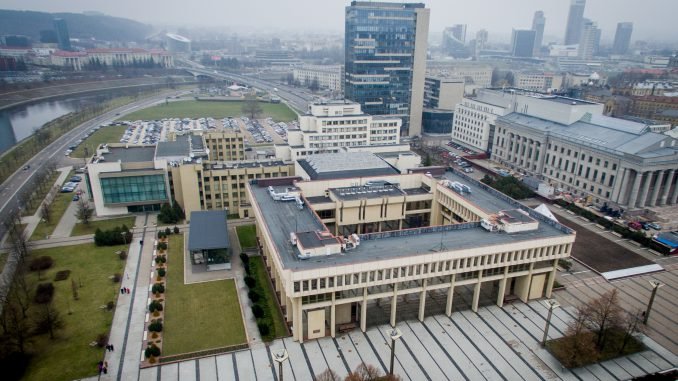
The respondents were asked to specify their expectations and their view of the first year of performance of parliamentarians.
Some 45 percent of those polled said the parliament’s work was poor, 13 percent said it was good and another 42 percent refrained from any assessment.
The parliament convened in its first meeting a year and a day ago, on Nov. 14 of 2016.
One in Four Disappointed
A closer look at the results shows that nearly a fourth of those polled (23.6%) described the first year of the parliament’s operations as below their expectations, and 20.9 percent said the parliament’s performance was just as bad as they had expected.
The parliament’s work was satisfactory to merely one in 20 respondents – 5.2 percent of those polled said the Seimas worked better than they had hoped for. Another 8 percent said the parliament’s work was as good as they had expected.
One in three respondents said they did not view the parliament’s work as “neither good, nor bad,” while 9 percent did not have an opinion on the matter.
In the survey on Oct. 14-29, RAIT interviewed 1,007 residents of Lithuania between ages of 15 and 74. The margin error is 3.1 percent.
Results: Alcohol and Forestry
In an effort to combat alcohol addiction, the parliament decided in June to ban alcohol advertisement in early 2018: it will only be sold to people over the age of 20 and during shorter selling hours, however, postponed its decision on specialized stores.
The parliamentarians in July paved way for forestry reform to centralize the management of state forests in a single company, however, the implementation of the reform will depend on the government’s decisions.
After certain amendments, the new Labor Code stepped into force in July, facilitating sacking of employees. In February, the parliament imposed a ban on corporal punishments for children, approving the reform of children’s rights protection in September.
The parliament also stepped up Lithuania’s involvement in NATO, taking decisions that would aim to block the Astravyets nuclear power plant under construction in Belarus close to the Lithuanian border.
Scandals: Corruption and Russia
During the first year of the new 2016-2020 parliament, Lithuania was shaken by a few scandals of political corruption – the law-enforcement brought suspicions against the Liberal Movement and the Labor Party. The Order and Justice party also faced similar suspicions. Amid the suspicions, MP Gintaras Steponavičius left the Liberal Movement.
Impeachment proceedings were initiated against Social Democratic MP Mindaugas Bastys over suspicious ties with Russia, while MP Kęstutis Pūkas faces impeachment over sexual harassment.
The parliament’s Anti-Corruption Commission scrutinized energy interests of Social Democratic MP Artūras Skardžius’ family and a possible conflict of interests. The relationship between the LFGU leader Ramūnas Karbauskis and MP Greta Kildišienė who later gave up her mandate were in focus of media attention for weeks.
Earlier this week, the police opened an investigation into a suspected drunk-driving incident of MP Linas Balsys. His family said that the politician, who has been absent from the parliament since last Thursday, was under the care of doctors and his family. LFGU have also initiated impeachment against conservative MP Vytautas Juozapaitis over his concert activities.
Challenges: Stability and Emigration
The post-election ruling coalition of the LFGU and the Social Democrats did not survive until the 1-year anniversary. After some of the Social Democrats decided to pull out of the bloc, LFGU may face the challenge of securing majority support for key decisions. Politicians are under escalating pressure of launching a resolute tax reform to reduce the enormous social inequality.
In June, the parliament approved an abstract plan on restructuring of the university network, however, actual changes are only possible after specific decisions have been made and laws have been changed.
In light of the Constitutional Court’s position and expectations of emigrants, the parliamentarians will have to decide on holding a referendum on broader dual citizenship.
The parliament should also address the state service reform, however, the Interior Ministry’s draft has already faced major criticism.
Dominated by Farmers and Greens Union
The LFGU makes the largest share of the parliament. The party delegated Parliamentary Speaker Viktoras Pranckietis and has a 56-member political group. The opposition conservatives are second with 31 members.
After disagreements on further operation sin the ruling coalition, the Social Democrats split in two groups – supporters of the party’s leader Gintautas Paluckas have seven members, while the Lithuanian Social Democratic Labor group, which remained in the coalition, has 12 members including two members of the Labor Party.
The Liberal shave 13 mandates, the Electoral Action of Poles in Lithuania – Union of Christian Families has eight. Another seven MPs work in the Order and Justice party’s group and six politicians work in the mixed group.

Be the first to comment